Turkey, a nation that places immense emphasis on its tourism sector, beckons travelers with an array of captivating attractions, both natural and urban. Ensuring a secure environment for tourists is a top priority in this diverse country. To fully relish your journey, it's pivotal to adhere to comprehensive safety tips during your sojourn in Turkey. Here's an in-depth exploration to guide you through your travel preparations:
Is Turkey a Safe Travel Destination?
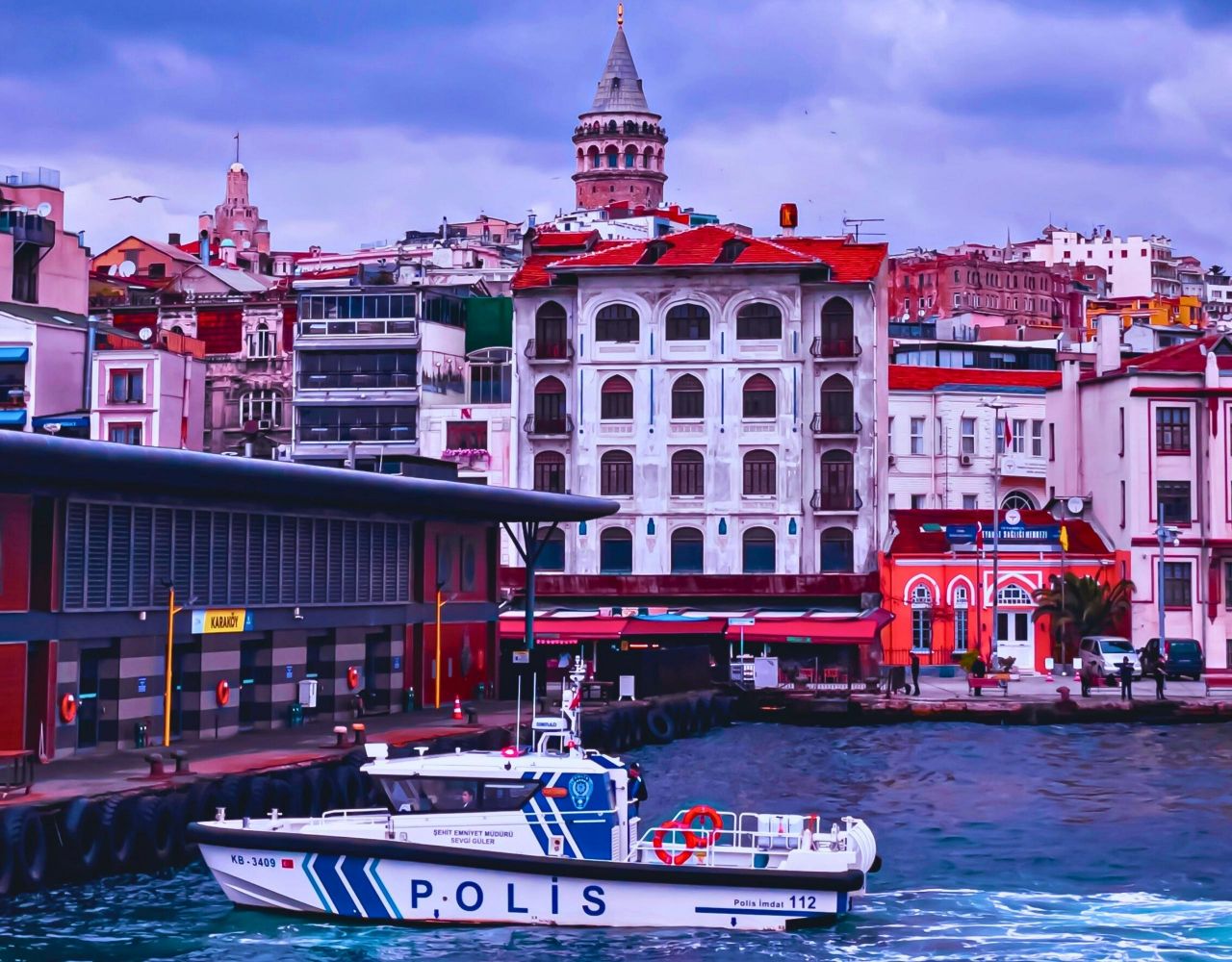
Absolutely, Turkey is considered a safe country for travel. To guarantee your safety, it's recommended to not only adhere to the directives provided by local authorities but also to stick to well-established tourist routes and destinations that have been deemed secure.
Key Safety Considerations
1. Stay Acutely Aware of Your Surroundings
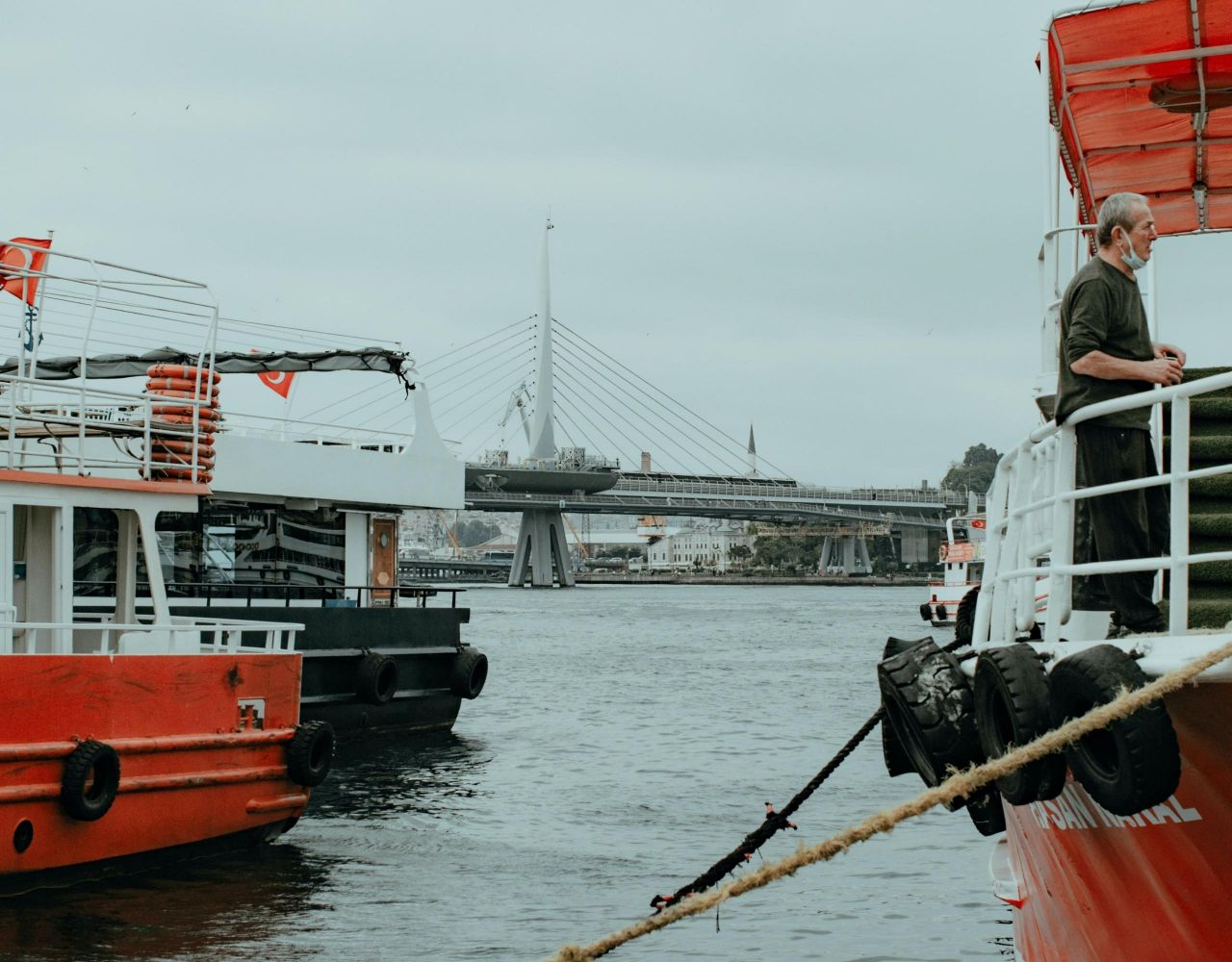
A paramount aspect of safe travel is maintaining a high level of situational awareness. While traversing through Turkey, it's prudent to stay attuned to your environment. Avoid participating in public demonstrations and strive to distance yourself from large gatherings, which could potentially lead to unforeseen safety issues.
2. Embrace the Security of Major Cities: Istanbul and Ankara
When journeying through Turkey, the security of major cities, particularly Istanbul and Ankara, is a pivotal aspect to consider. These urban centers stand as exemplars of the country's commitment to safeguarding both local residents and tourists. By understanding the security measures in place and being mindful of certain considerations, you can ensure a safer and more enjoyable experience during your stay in these metropolitan areas.
Istanbul: A Tapestry of History and Vigilance
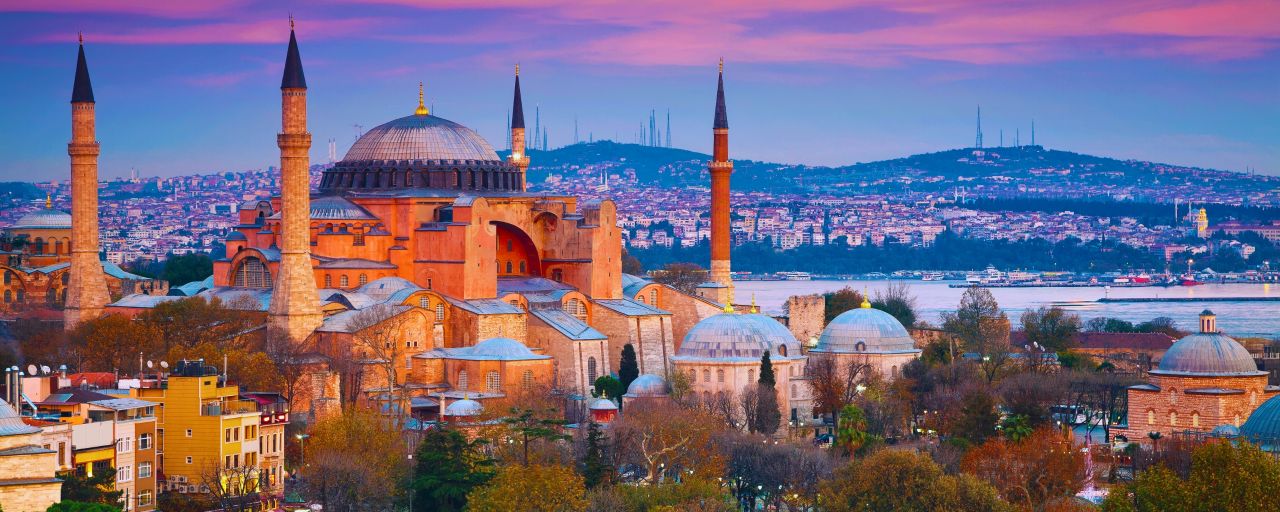
As the largest city in Turkey, Istanbul boasts an intricate blend of history, culture, and modernity. Amid its vibrant tapestry, security measures play a crucial role in maintaining tranquility for all residents and visitors. The city's strategic significance as a cultural and economic hub has led to comprehensive security protocols.
Key points to consider:
- Tourist-Friendly Zones: Istanbul is home to iconic landmarks such as the Hagia Sophia, Blue Mosque, and Topkapi Palace. These areas are well-patrolled and monitored, ensuring the safety of tourists exploring these historic sites.
- Public Transport Vigilance: Public transportation networks, including buses, trams, and ferries, are equipped with security measures to provide a secure environment for commuters and travelers alike.
- Police Presence: Law enforcement personnel are visibly present in major tourist areas, contributing to a heightened sense of safety.
Ankara: The Capital's Protective Measures
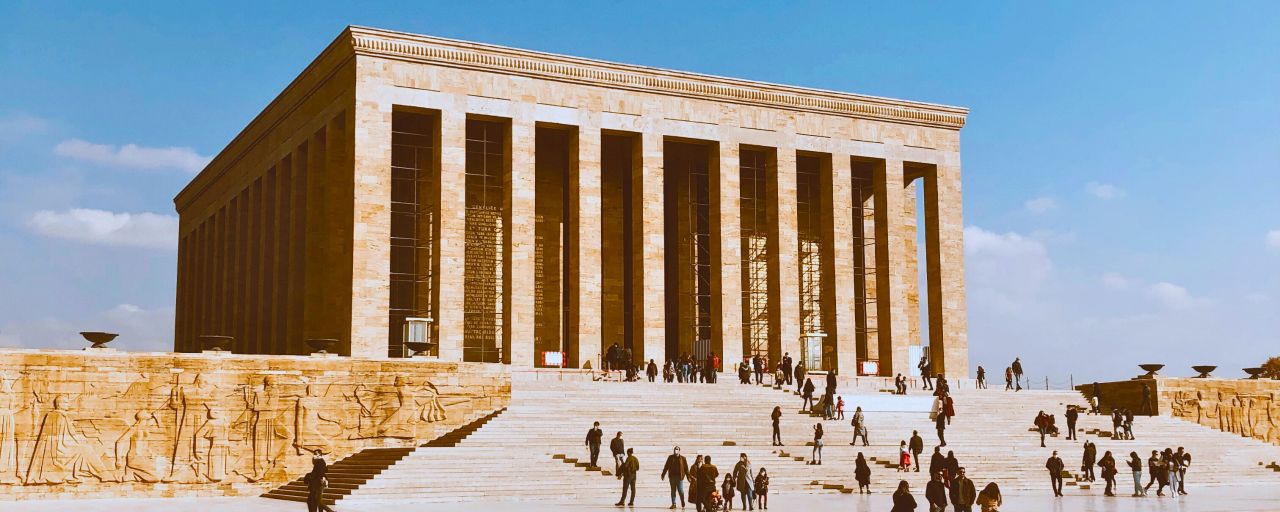
Ankara, the capital of Turkey, is not only a political center but also a city of cultural significance. Its status as the administrative heart of the nation is accompanied by a commitment to security measures that safeguard both residents and tourists.
Key points to consider:
- Governmental Vigilance: Ankara's role as the political center of Turkey translates into a high level of security, ensuring the smooth functioning of government institutions.
- Cultural Landmarks: Ankara houses numerous museums, historical sites, and cultural venues. These areas are subject to stringent security checks to maintain the safety of visitors.
- Transportation Safety: The city's transportation systems, including buses, subway, and railways, are designed to prioritize passenger safety.
3. Safeguard Your Important Documentation
A cardinal rule of safe travel is to always carry duplicate copies of vital documents, including your passport and identification. Exercise prudence with your finances, credit/debit cards, and personal belongings to thwart potential theft or loss.
4. Coastal Enclaves and Tourist Hubs
Turkey's coastal regions and cultural epicenters are typically secure havens for tourists. However, exercise prudence by taking extra measures to safeguard your belongings. Additionally, it's advisable to establish price agreements for services such as taxis and guided excursions before embarking on them.
5. Show Respect for Islamic Cultural Norms
Turkey's harmonious blend of modernity and Islamic heritage is a defining characteristic. To ensure cultural sensitivity, particularly in Islamic zones, mosques, and monuments, it's wise to adhere to local customs. Carrying a shawl (for women) and socks (for men) to cover specific body parts can help you honor sacred traditions.
6. Navigate Chaotic Traffic with Care
While exploring the dynamic streets of Turkey, particularly in bustling cities like Istanbul and Ankara, navigating through chaotic traffic requires a blend of attentiveness, patience, and caution. The lively energy of these urban centers can sometimes translate into challenging road conditions, making it crucial to adopt a proactive approach to ensure your safety and the safety of others.
Prioritize Pedestrian Safety
Whether you're exploring the historic streets or crossing modern boulevards, pedestrian safety is paramount:
- Crosswalks and Traffic Signals: Utilize designated crosswalks and adhere to traffic signals whenever possible. Look both ways before crossing and wait for a safe opportunity.
- Stay Visible: In busy areas, wear bright or reflective clothing to enhance your visibility, especially during the evening.
- Avoid Distractions: Stay focused while crossing roads. Avoid using mobile devices or headphones that might impair your awareness.
Driving: A Deliberate Approach
If you choose to drive in Turkey, keep these points in mind:
- Local Driving Style: Be prepared for an assertive driving style among locals. Maintain a level of assertiveness yourself, but always prioritize safety over speed.
- Traffic Rules: Familiarize yourself with local traffic rules and regulations. Adhering to these rules helps maintain order amidst the chaos.
- GPS Navigation: Utilize GPS navigation tools to navigate the city's intricate road network. These tools can help you plan routes and avoid congested areas.
Public Transportation: A Safer Alternative
In major Turkish cities, public transportation is a popular and often safer alternative to driving:
- Metro and Trams: Utilize the metro and tram systems, which offer efficient connectivity between various parts of the city.
- Buses: Public buses are another reliable option for navigating the city. Be sure to verify routes and stops before boarding.
- Taxi Safety: If you opt for a taxi, choose reputable taxi companies. Confirm that the meter is running, and agree on the fare before starting the journey.
Cautious Crossing and Parking
Additional tips for safely traversing urban traffic:
- Intersections: Exercise caution at intersections, as they can be particularly busy and unpredictable. Observe traffic patterns before proceeding.
- Parking: When parking, choose secure and well-lit areas. Ensure your vehicle is parked legally and consider using paid parking lots for added security.
7. Equipped for Seismic Activity
Given the seismic activity in the region, it's prudent to familiarize yourself with earthquake safety protocols. In the event of an earthquake, remaining composed and following established safety procedures can significantly enhance your well-being.
Areas to Avoid
While Turkey offers a diverse range of attractions and experiences, it's important to be aware of specific areas that may have safety concerns. Here are the areas you should avoid due to ongoing conflicts and potential risks:
- Turkey-Syria Border: Stay at least 10 km away from the Turkey-Syria border due to ongoing geopolitical tensions and security risks.
- Diyarbakir City and Province: This region has experienced political and social unrest, making it advisable to avoid for safety reasons.
- Tunceli Province: Due to its remote location and sporadic security incidents, Tunceli is recommended to be avoided by tourists.
- Hakkari Province: Similar to Tunceli, Hakkari's remote location and security concerns make it a region to steer clear of during your travels.
- Sirnak Province: Ongoing security issues in Sirnak Province warrant caution and avoidance.
- Kilis City and Province: The proximity to conflict zones has led to potential security risks in Kilis City and Province.
- Hatay Province: While Hatay is home to rich history and culture, its proximity to Syria brings about security concerns that make it an area to avoid.
- Mount Ararat: The vicinity of Mount Ararat to the borders of Iran and Armenia makes it an area to exercise caution and avoid due to potential security risks.
- Neighborhood Cincin in Ankara: This specific neighborhood in Ankara is best avoided due to its association with safety concerns.
While these areas may have specific security issues, it's important to note that the majority of Turkey is safe for travelers. By staying informed, adhering to travel advisories, and focusing on well-established tourist destinations, you can enjoy a safe and memorable trip to this fascinating country.
Common Scams to Be Mindful Of
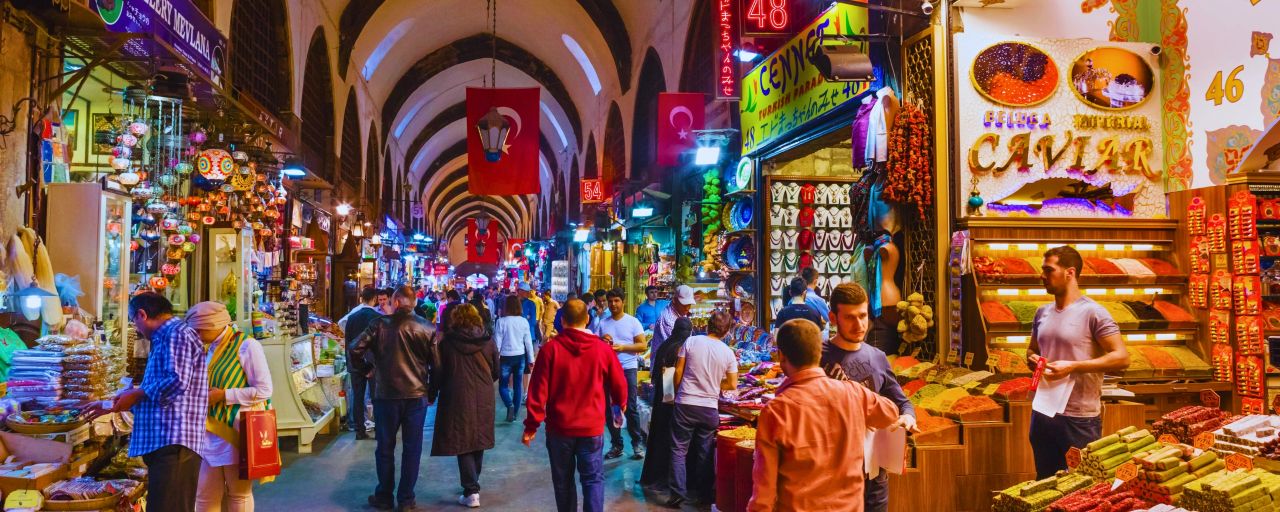
To ensure a secure travel experience, exercising caution against common scams is crucial:
- Shoe Cleaner Scam: Be wary of individuals dropping their shoe-cleaning equipment; they might expect compensation afterward.
- Taxi Scams: Negotiate fares in advance and ensure the taxi meter is operational to prevent excessive charges or unnecessary detours.
- Unsolicited Food or Drinks: If you receive unrequested items, inquire about them to avert unexpected charges.
- Haggling for Fair Prices: Engage in haggling, as prices might be inflated for tourists. Alternatively, consider enlisting the help of locals to make purchases.
- Exact Payments: Strive to provide exact amounts to minimize any issues with change.
- Guided Assistance: Exercise caution when accepting help from strangers if you're lost; they could lead you to establishments where they receive commissions.
- Guarding Against Pickpocketing: Be especially cautious in crowded spaces to prevent theft of your belongings.
Solo Travel and Traveling as a Woman
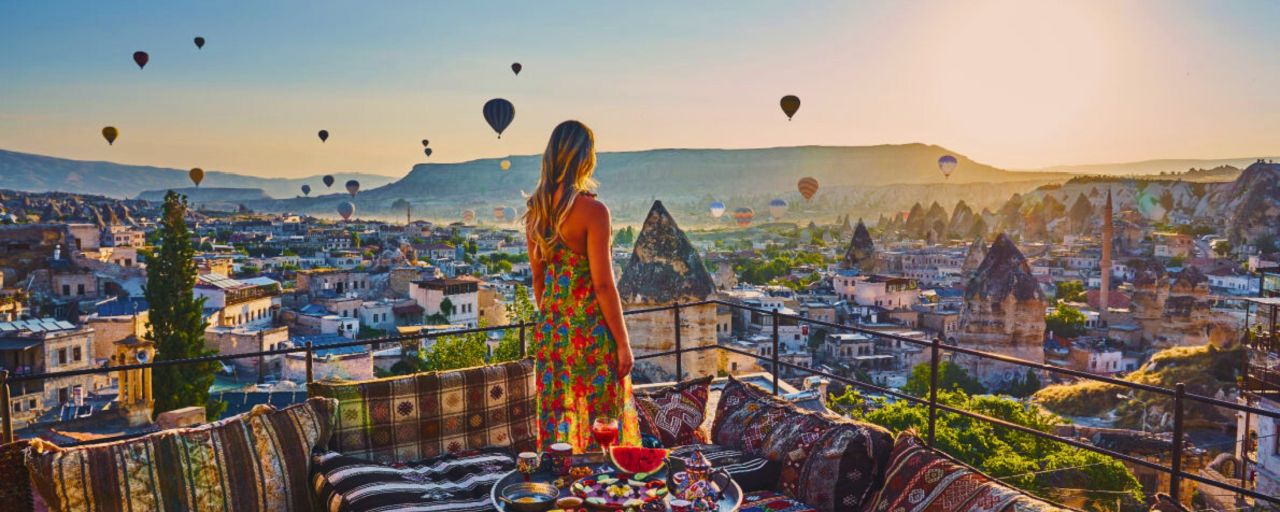
Turkey is a welcoming destination for solo travelers and women alike. When traveling alone, prioritize safety by staying within secure areas and making the most of the hospitable local environment. For women, having a scarf at hand is advised, especially when entering mosques. Turkey's social fabric encompasses both traditional Islamic attire and contemporary Western fashion.
Traveling with Children
Turkey is a family-friendly destination, making it an ideal choice for travelers with children. Empower your children to remain together and avoid wandering into unfamiliar or potentially unsafe neighborhoods.
|
Aspect |
Guidelines |
|
1. Supervision in Crowds |
Encourage children to stay close to you in crowded areas to prevent them from getting separated. |
|
2. Secure Identification |
Ensure that children have identification with contact information on them in case they become lost. |
|
3. Familiarize with Emergency Plan |
Familiarize children with emergency protocols, such as who to contact and where to go in case of separation. |
|
4. Avoid Unfamiliar Areas |
Stay within well-known and safe areas to minimize the risk of encountering dangerous neighborhoods. |
|
5. Teach About Strangers |
Educate children about interacting with strangers and emphasize the importance of not going with them. |
|
6. Use Reputable Transportation |
Choose reliable transportation options that prioritize safety when traveling with children. |
|
7. Sun Protection and Hydration |
Ensure children are well-protected from the sun, stay hydrated, and use appropriate sunscreen. |
|
8. Follow Local Health Precautions |
Adhere to local health guidelines, such as vaccinations and food safety, to safeguard children's well-being. |
|
9. Identify Safe Play Areas |
Identify safe playgrounds or recreational areas where children can play under supervision. |
|
10. Maintain Open Communication |
Keep an open line of communication with children to address any concerns or questions they might have. |
|
11. First Aid Kit |
Carry a basic first aid kit to address minor injuries or ailments that might occur during the trip. |
|
12. Appropriate Accommodations |
Opt for accommodations that are child-friendly and have necessary amenities for a comfortable stay. |
|
13. Avoid Unsanitary Practices |
Instruct children to avoid touching animals, especially strays, and to wash hands frequently. |
|
14. Stay Updated on Local Customs |
Familiarize children with local customs and cultural sensitivities to ensure respectful behavior. |
|
15. Emergency Contact Information |
Always have emergency contact numbers on hand and teach children how to use a phone in case of need. |
By implementing these safety guidelines when traveling with children in Turkey, you can create a secure and enjoyable experience for the entire family.
In Conclusion
As you prepare to embark on your Turkish adventure, it's imperative to incorporate these essential safety guidelines into your travel plans. By adhering to these recommendations, you can seamlessly immerse yourself in the allure of Turkey's attractions while upholding your personal safety as a paramount priority.
FAQ
- Is Turkey a Safe Travel Destination?
Yes, Turkey is generally considered safe for travelers. However, like in any country, it's important to be aware of your surroundings, follow local guidelines, and take necessary precautions.
- What Are the Essential Safety Tips for Traveling in Turkey?
Stay aware of your surroundings.
- Adhere to local authorities' instructions and tourist routes.
- Keep copies of important documents and secure your belongings.
- Respect Islamic customs and cultural norms.
- Exercise caution when navigating chaotic traffic.
- Be cautious of common scams, such as taxi fraud and pickpocketing.
- Avoid areas near the Turkey-Syria border and certain conflict-prone provinces.
- Can I Travel Safely Alone in Turkey?
Yes, Turkey is a popular destination for solo travelers. Stick to well-known areas, and you'll likely have a safe and enjoyable experience. Just be cautious in unfamiliar neighborhoods and follow general safety guidelines.
- Is It Safe for Women to Travel to Turkey?
Yes, Turkey is generally safe for women travelers. Carrying a scarf is advisable for visiting mosques, and you can dress comfortably in most parts of the country. Respect local customs and use common sense to stay safe.
- How Should I Navigate Chaotic Traffic in Turkish Cities?
When navigating through the chaotic traffic in Turkish cities:
- Prioritize pedestrian safety by using crosswalks and following signals.
- Drive with caution and assertiveness, adhering to local traffic rules.
- Consider using public transportation as a safer alternative.
- Stay aware of intersections and parking safely in well-lit areas.
- What Areas Should I Avoid in Turkey?
Avoid the following areas due to ongoing conflicts and potential security risks:
- Turkey-Syria border.
- Diyarbakir City and Province.
- Tunceli Province.
- Hakkari Province.
- Sirnak Province.
- Kilis City and Province.
- Hatay Province.
- Mount Ararat.
- Neighborhood Cincin in Ankara.
- Is Tap Water Safe to Drink in Turkey?
In most urban areas and tourist destinations, tap water is considered safe to drink. However, it's recommended to drink bottled water in rural or remote areas.
- Can I Use Credit/Debit Cards for Payments?
Yes, credit and debit cards are widely accepted in tourist areas, major cities, and establishments. It's advisable to carry some cash for small transactions, especially in rural locations.
- What Should I Do in Case of Earthquakes?
Given Turkey's seismic activity, familiarize yourself with earthquake safety protocols. Stay calm and follow established guidelines, which may include finding cover or moving to open areas away from buildings.
Obtain Your eVisa for Turkey
Step1: Complete the online application form by providing your passport details.
Step2: Safely process your payment using your credit card through our secure online platform.
Step3: Monitor your email for payment verification and the electronic dispatch of your eVisa.
